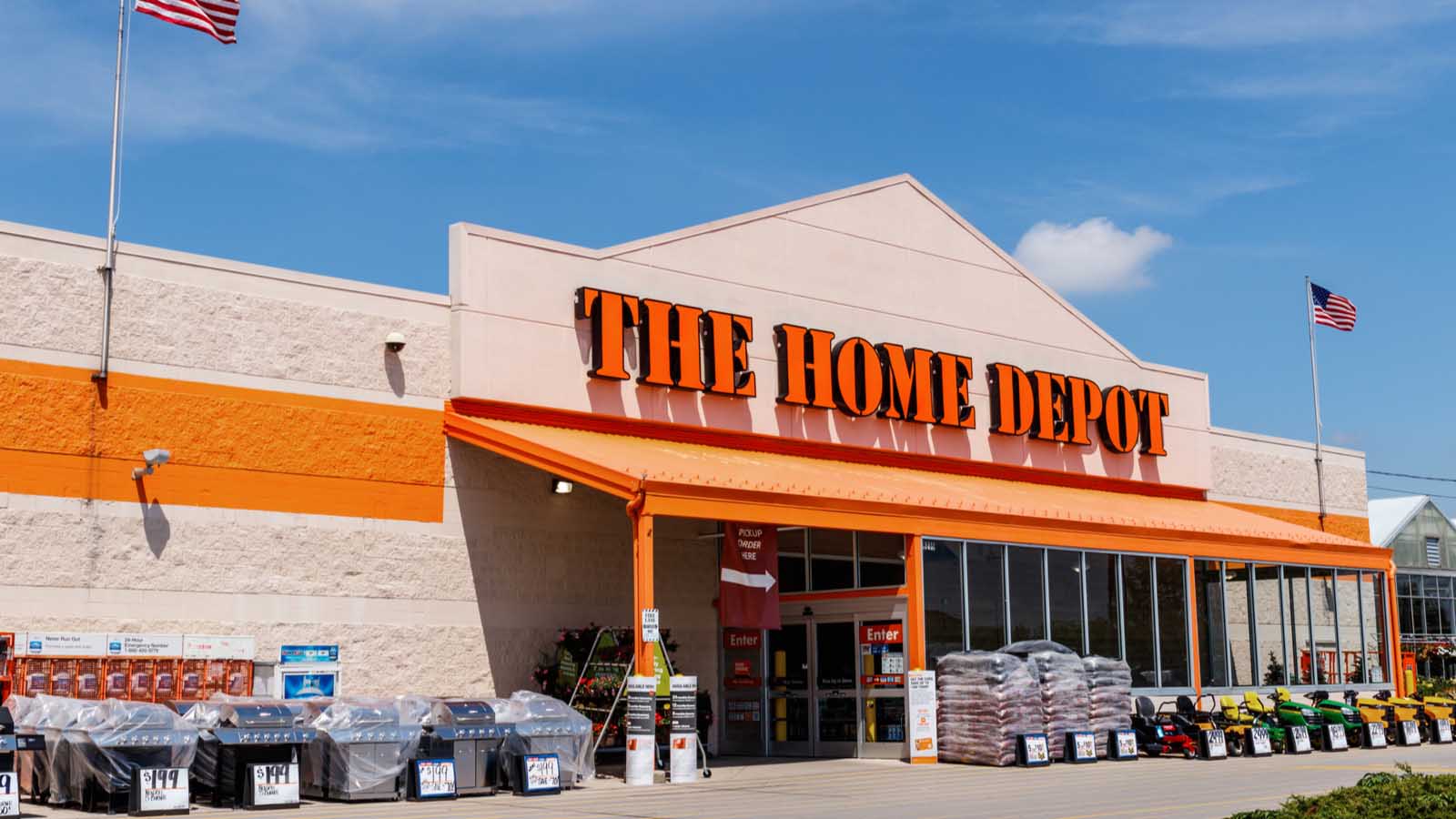Home Depot (NYSE:HD) stock failed to rally in mid-August despite reporting second quarter numbers that simply blew estimates out of the water.

Normally when a red-hot stock fails to rally after super-strong numbers, that’s a sign of valuation friction and rally exhaustion.
And that’s exactly what we’re seeing with HD stock today. Thanks to the Covid-19 pandemic, Home Depot’s business is on fire right now. But the stock is overvalued and overbought, and this big rally is on its last legs.
That’s not to say HD stock is due for a big correction; the fundamentals here are just too strong. But it is to say that upside potential in the stock over the next few months will be limited.
So don’t chase this rally. Instead, be patient, and wait for a dip.
Here’s a deeper look.
Strong Home Depot Earnings, with One Flaw
For the most part, Home Depot’s second quarter earnings report was spectacular.
The home improvement retailer absolutely smashed sell-side expectations in terms of comparable sales growth, revenues and profits. Specifically, total comparable sales rose 23.4% year-over-year, while U.S. comps rose 25%. Those are huge numbers for a company that has a history of reporting sub-10% comparable sales growth.
Revenues rose more than 20%. Digital sales rose more than 100%. Customer transactions rose more than 10%. Earnings per share rose more than 25%.
The quarter comprised big growth across the board, but there was one flaw: margins didn’t expand by much.
One would expect that, amid such a huge and immediate sales surge, Home Depot would be able to benefit from economies of scale and drive positive operating leverage. But that’s not happening. In the same quarter that Home Depot’s sales rose 23%, operating expenses rose 24%.
Sure, there was some gross margin expansion. But not much. And ultimately, 23.4% sales growth translated into 23.9% operating profit growth.
That’s pretty poor margin expansion against the backdrop of such a huge sales tailwind.
And it’s concerning on go-forward basis because it means that Home Depot’s profit margins may simply be maxed out.
Overvalued & Overbought
Zooming out, HD stock looks both overvalued and overbought at current levels.
The stock has come a long ways in a short time. Over the past three months, shares are up more than 20%. Thanks to this big rally, the 14-day Relative Strength Index on HD stock is above 80, healthily into overbought territory.
According to YCharts, today’s RSI reading matches a five-year-high. The last time the RSI got this high — back in early 2018 — HD stock pulled back over the next few months. I wouldn’t be surprised to see something similar happen this time around.
Meanwhile, its valuation is very full. On a trailing sales, trailing cash flow and forward earnings basis, HD stock is about as richly valued as it’s ever been — and trading at a huge premium to its “normal” valuation levels.
That wouldn’t be a problem if the company was going to sustain 20%-plus revenue growth for the next few years. But that won’t happen. Once Covid-19 abnormalities fade — likely by 2021 — Home Depot will revert to a low-single-digit revenue growth trajectory with maxed out margins.
Against that growth backdrop, today’s valuation on HD stock (nearly 30-times forward earnings) seems too rich.
Bottom Line on HD Stock
Home Depot is a great company. But when buying stock in great companies, you want to buy at great prices, too.
Right now, HD stock isn’t trading at a great price.
The stock is both overbought and overvalued today, with Covid-19 tailwinds set to moderate in the back-half of 2020. Thus, it seems quite likely that this rally is on its last legs, and that Home Depot stock pulls back or trades largely sideways over the next few months.
Look to buy that dip. But don’t chase the stock here.
Luke Lango is a Markets Analyst for InvestorPlace. He has been professionally analyzing stocks for several years, previously working at various hedge funds and currently running his own investment fund in San Diego. A Caltech graduate, Luke has consistently been rated one of the world’s top stock pickers by various other analysts and platforms, and has developed a reputation for leveraging his technology background to identify growth stocks that deliver outstanding returns. Luke is also the founder of Fantastic, a social discovery company backed by an LA-based internet venture firm. As of this writing, he did not own a position in any of the aforementioned securities.
